Fruit.
Discovered by a Spanish grower while walking through his farm in Valencia, and developed in conjunction with Citrus Genesis
The Muñoz Group has unveiled a new, season-extending satsuma.
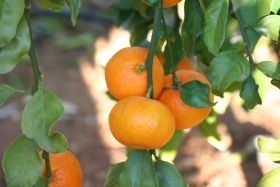
The new Belalate satsuma is an ultra late variant of the Owari satsuma variety.
It was discovered by Spanish grower Pepe Beltran whilst walking through his farm in Valencia, and has been developed in conjunction with leading varietal specialist company Citrus Genesis.
As the fruit arrives some three to four weeks later than the traditional Owari variety, it will extend the season delivering the same attributes which have made satsumas such a popular citrus product in the UK.
The fruit has a rich orange colour, sweet flavour, is very easy to peel and totally seedless. As it develops later on the tree, the benefits are that the skin is thicker and firmer; it does not require degreening therefore giving a stronger and fresher product with a longer shelf life for the customer.
David Alba, director of Citrus Genesis, said: “This new variety of satsuma represents a significant breakthrough for growers, retailers and customers alike. There have historically been gaps in the satsuma supply in both January and February and mid-July to mid-September.
“Belalate will, once established volumes are in production worldwide, provide an all-year-round supply. It’s a first for true satsumas which are held in high regard by the British public.”
The Belalate satsuma will only be available in Tesco and M&S.
Scientist: ‘Eating fruits and veg without phytochemicals would in many ways be analagous to drinking the empty calories of a can of soda’
Our fruit and vegetables are getting sweeter, but at a cost to our health, scientists have claimed.
Research conducted on behalf of New Scientists found that although making the likes of cabbage and Brussels sprouts less bitter may help in the battle to get children to eat them, it takes away some of the very things that make fresh produce so healthy.
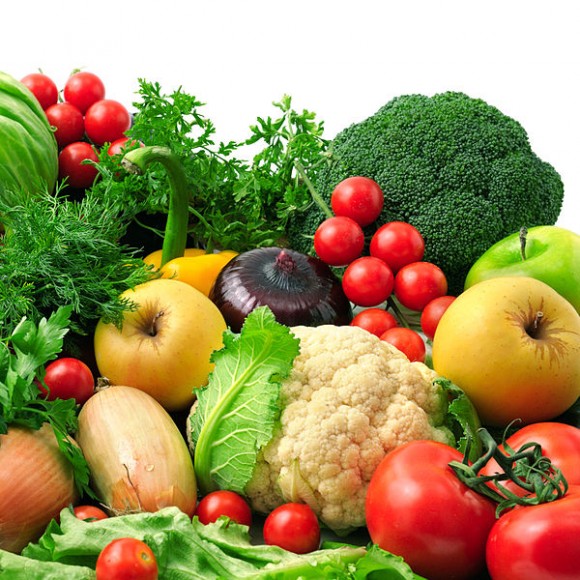
The team looked at research cited in Florida 30 years ago, where white grapefruit were much more popular than sweeter red and pink grapefruits, with growers shipping 27 million boxes of white grapefruit compared to 23 million pink grapefruit, but today, coloured grapefruit are reportedly twice as popular as white varieties.
However, white grapefruit contain 50 per cent more bitter-tasting compounds, phytonutrients, linked to improving the cardiovascular system, than the red and pink grapefruit.
Jed Fahey, a molecular scientist at Johns Hopkins University, told New Scientist: “Eating fruits and vegetables without phytochemicals would in many ways be analagous to drinking the empty calories of a can of soda.
“Yes you could survive on de-bittered fruits and vegetables, and they would help maintain life, but not good health.”
Thousands of phytonutrients have been discovered in fruit and veg. In grapefruit, an ultra-bitter compound, naringin, has been found to have anti-ulcer and anti-inflammatory properties.
Quercetin, a bitter chemical found in broccoli can help protect against lung cancer.
Other surveys have found phytonutrients such as sinigrin, found in Brussel sprouts, cauliflower, cabbage and kale, has anti-cancer properties.
A shipment of the fruit has been rejected in the Netherlands due to the presence of fruit fly
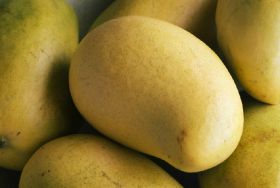
An airfreighted consignment of mangoes from Pakistan has been turned away in Amsterdam after the presence of fruit fly was discovered by inspectors.
The rejection of the mangoes marks the first time this season that any volumes of the fruit from Pakistan has been rejected by the EU, the Express Tribune reported.
“This is the first rejection of any mango consignment this season,” explained Dr Mubarak Ahmed, director general of Pakistan’s Department of Plant Protection. “We have further tightened up the clearance measures to control the situation.”
Prior to last week’s discovery, which was made in a 4.5 tonne consignment of the fruit, Pakistan has exported some 26,000 tonnes of mangoes to the European Union so far this export campaign.
The National Diet and Nutrition Survey found that nearly one in ten people from the Lothians eats no fruit or veg
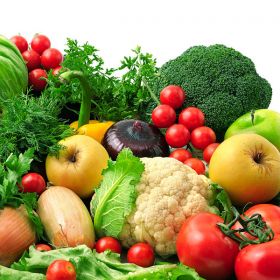
Cracks about the Scottish diet are nothing new, but now a new study has shown that nearly one in ten people in the Lothians eats no fruit or vegetables.
The National Diet and Nutrition Survey also found that more than two-thirds of people across the region don’t get their “5 A DAY”, and that over half of all Edinburgh adults are either overweight or obese.
In response to the results, the Edinburgh evening news reports, a drive has been launched to promote healthier eating habits among the region’s population.
Edible Edinburgh is a campaign that brings together the NHS, city council and volunteer-led groups in a bid to change public attitudes to food and encourage people to buy more local produce and grow their own fruit and veg.
Launching Edible Edinburgh, the city council’s environment convener Lesley Hinds told the Evening News: “We all know that a nutritious diet, including plenty of cereals, fruit and vegetables, is essential for a good start in life, and to stay healthy later on.
“Unfortunately, not everyone has access to affordable fresh and healthy food, and we are determined to change that in Edinburgh.”
Retailer lists ‘first-ever’ Bangladeshi mangoes exported to mainstream European markets
Asda will this week receive the first delivery of Bangladeshi mangoes to the UK in a move that signals the start of the country’s access to mainstream international retailers.

The news comes following field visits and sample shipments of nine mango varieties during last year’s season, Bangladeshi local paper The Dhaka Tribune reported. Asda’s buying arm IPL then selected three mango varieties, Himsagar, Langra and BARI Aam-3 (Amrupalli), to import during the 2015 season, the paper said.
A spokeperson for Asda said: “We are due a delivery of the Himsagar variety mangoes from Bangladesh this week and they’ll be available in 10 stores.”
Vice chairman of Bangladesh’s Export Promotion Bureau (EPB), Shubhashish Bose, told The Dhaka Tribune: “The mango exports to UK will open the door of earning foreign currencies and will also help the government to start for product diversification.”
Mike Robson, representative of the Food and Agriculture Organisation (FAO) to Bangladesh, said: “I am really excited to say that mangoes from Bangladesh have market access to UK, meaning it will open a gateway for other supermarkets in Europe.”
Over 150 farmers across the three districts of Satkhira, Chapainawabganj and Rajshahi have now been registered to supply mangoes, the Dhaka Tribune said.
Organisers say there will be a bumper programme of technical seminars and parallel events at this year’s show
Preparations for the 2015 edition of Fruit Attraction are well underway and this year’s fair will feature an extensive programme of technical seminars and parallel activities and sector-specific events, according to organisers Ifema and Fepex.

These include the second edition of Stone Fruit Attraction, which will be held on October 29, and will shine a spotlight on the diversity and variety of Spain’s stonefruit offer that enables the country to be the only Northern Hemisphere country able to supply the market for six months of the year (April to November).
The seventh edition of Fruit Attarction, which is expected to be the biggest yet, will also host the first congress for kakis, Kaki Attraction, to address the growing prominence of this product in Spain’s fresh produce basket.
Other highlights include the “Oganic Hub”, a space dedicated to organic fruits and vegetables and a parallel session on the afternoon of 28 October entitle “Markets and marketing of organic fruits and vegetables in Europe”, promoted by F&H, as well as Fruit Retail, an event organised by Alimarket, and the II Forum of Agri-journalists, which will focus on an analysis of the production and marketing of European fresh produce.
Meanwhile, Fruit Fusion, featuring cooking demonstrations from some of the best chefs in the country, will once again be a key part of the three-day event, as will Pasarela Innova, a space to showcase new varieties, and Foro Innova, an area featuring presentations on the latest developments in the industry.
New clementine variety ripens three weeks earlier than Clemenules
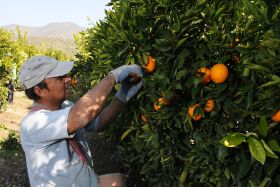
Chile has high hopes for a new licensed citrus variety that was recently launched on the global market. Clemenluz, or Andes 1, is an early maturing clementine which resulted from a spontaneous mutation of the Clemenules variety.
Clemenluz has similar characteristics to Clemenules – being of good quality, intense colour and seedless – but ripens three weeks earlier.
It has been planted in Chile for a number of years and is now being rolled out commercially in South Africa, Spain, Morocco and Egypt.
Andes New Varieties Association (ANA), the company that manages the licensing and certification of the variety, said it is also in talks with growers in a number of other countries such as Argentina, the US and Uruguay.
Arsenal stars Mathieu Debuchy and Wojciech Szczesny have posted a picture of themselves braving some infamous durian fruit.

The photo of the footballers, posted on Debuchy’s Instagram account Thursday (14 May), doubled up as a way of promoting the club’s upcoming tour to Singapore, where the fruit – renowned for its potent smell – is popular.
In a separate story involving the same fruit, two Jersey firefighters crews and a Jersey Gas representative responded quickly to an alert about a potential gas leak at a block of flats.
The property was searched, but no gas leak was found, with the crews realising that the gas-like stench was coming from some durian fruit belonging to the residents.
In the UK since 1980, ice cream prices have fallen by 50 per cent, while fruit and vegetables have gone up by 199 per cent, ODI claims
British-based think tank the Overseas Development Institute (ODI) has recommended that emerging economy governments consider introducing taxes and subsidies to offset wildly differing price changes in junk food and healthy food.
People in newly-rich countries struggle to eat a healthy diet because some common processed foods like cakes and biscuits have become cheaper, while at the same time, the prices of fruit and vegetables have gone up, the ODI argues.
The ODI study, ‘The rising cost of a healthy diet’ which looked at relative food retail prices in Brazil, China, Korea and Mexico – the first of its kind in emerging economies – found that fruit and vegetables rose in price by up to 91 per cent between 1990 and 2012, a price hike higher than other any other food group. On the other hand, some processed foods, like ready meals, dropped in price by up to 20 per cent.
Report findings include: 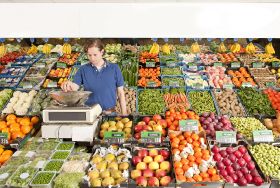
– In Mexico, where almost 70 per cent of adults are overweight and obese, ready meals have become cheaper and the cost of green vegetables has increased since 1990.
– In Brazil, where the prevalence of overweight and obese adults has doubled since 1980, crisps, biscuits, energy bars and sugary drinks formulated to be ‘hyper-palatable’ are much more widely eaten than previously.
– In China green vegetables have become twice as expensive over the last 20 years.
– In South Korea, the price of cabbage, a common ingredient of traditional dishes such as kimchi, has risen by 60 per cent.
– In the UK since 1980, ice cream prices have fallen by 50 per cent, while fruit and vegetables have gone up by 199 per cent.
ODI researcher and report co-author, Steve Wiggins, said: “In Brazil, the consumption of ‘ultra-processed’ ready-to-eat food has risen from 80kg per person per year in 1999 to around 110kg per person per year by 2013. Using the weight of the food as a measure, this is equivalent to each person eating an extra 140 Big Macs a year.”
The report’s authors said the rising cost of fruit and vegetables may be due – in part – to cutting-edge technologies that result in higher-quality vegetables that are cut, trimmed, bagged and washed, and available all year round.
Advances in food manufacturing and falling costs of transport and logistics could explain the drop in prices of some processed foods such as noodles, ice cream, crisps and cookies.
Wiggins added: “In January 2014, in an attempt to curb obesity, Mexico introduced taxes on sugary drinks and energy-dense food. Everyone is watching to see what effects these taxes have, as policy-makers in rich and poor countries struggle to respond to the looming health epidemic caused by changing diets.”
The report recommends that emerging economy governments consider introducing taxes and subsidies to offset these price changes.
Wiggins said: “Research in the UK in 2009 predicted that imposing a VAT-style 17.5 per cent tax on less healthy food and using the proceeds to subsidise fruit and vegetables would save between 3,600 and 6,400 premature deaths a year from diet-related disease.
“Even the lower estimate (3,600) is more than twice as many as the amount of people that die on the roads in the UK and a huge effort is put into road safety.”